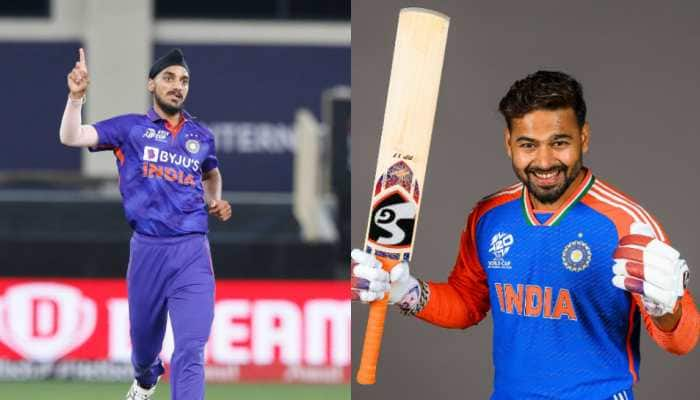Three soldiers killed in J&K: Time for India to give a befitting reply to Pakistan
Three soldiers were killed, and one of them was beheaded on the Line of Control in Jammu and Kashmir - in action that the Army said bore the "signature" of the Pakistan Army's Border Action Team. Pakistan has, however, flatly denied the allegations.
Trending Photos
)
Jammu: Three soldiers were killed, and one of them was beheaded on the Line of Control in Jammu and Kashmir - in action that the Army said bore the "signature" of the Pakistan Army's Border Action Team. Pakistan has, however, flatly denied the allegations.
The soldier who was mutilated has been identified as 31-year-old Rifleman Prabhu Singh from Khirjankhas village in Jodhpur district, Rajasthan. The other two soldiers are Gunner Manoj K Kushwah and Rifleman Shashank K Singh, both from Gazipur district of Uttar Pradesh.
The beheading is the second incident of mutilation of a soldier's body in less than a month. The army has vowed "heavy retribution for the cowardly act".
The incident took place in Machhil sector of the Line of Control (LoC), which divides the state between India and Pakistan, in Kupwara district.
Defence Minister Manohar Parrikar was briefed about the situation by Army Vice Chief Lt. Gen. Bipin Rawat, officials said on Tuesday.
"The cowardly act of mutilating the body of one of the Indian soldiers had all the signatures of a BAT (Border Action Team) operation by Pakistan army using terrorists and its soldiers," said officials.
"3 soldiers killed in action on LoC in Machhil. Body of one soldier mutilated, retribution will be heavy for this cowardly act," the army's Northern Command said in a tweet.
Spokesperson of Pakistan's Foreign Ministry M. Nafees Zakaria denied mutilation of any Indian soldier by Pakistani forces.
"Pakistan strongly rejects the false and baseless Indian media reports regarding the alleged mutilation of an Indian solider on the LoC," Zakaria said in a tweet.
"These reports are a fabrication and a blatant attempt to malign Pakistan.
"As a professional force, Pakistan army isn't involved in any such unethical and non-professional activity and neither supports any such action," he said.
The opposition parties led by Congress questioned what the Indian government was going to do about the incident.
"If our soldiers are being brutalised in this manner the responsibility is of the government squarely. the question that needs to be asked is what is the government going to do about it," Congress leader Manish Tewari said.
On October 28, the body of 27-year-old Indian soldier Sepoy Mandeep Singh was mutilated by terrorists, who fled back to Pakistani part of Kashmir under supportive fire cover by Pakistani troops.
In response, the Indian Army carried out a heavy assault in Keran sector of Jammu and Kashmir, destroying four Pakistani posts.
According to figures given by Minister of State for Defence Subhash Bhamre in the Lok Sabha last week, till November 14 this year, eight Army personnel have been killed and 59 injured.
In a written reply in the Rajya Sabha on Tuesday, Bhamre also said that there has been an increase in infiltration attempts since the killing of militant leader Burhan Wani on July 8.
This was not the first time that Pakistan has mutilated bodies of Indian soldiers.
During the Kargil war in 1999, Captain Saurabh Kalia, and Sepoys Arjunram Baswana, Mula Ram Bidiasar, Naresh Singh Sinsinwar, Bhanwar Lal Bagaria and Bhika Ram Mudh of 4 Jat Regiment were captured by Pakistani troops and brutally tortured.
On January 8, 2013, Pakistani soldiers entered Indian territory in Krishna Ghati sector of the border and killed two Indian soldiers -- Lance Naik Hemraj and Lance Naik Sudhakar Singh. Indian officials said bodies of both were mutilated, and Hemraj's body was decapitated.
Article 4 of the Third Geneva Convention protects captured military personnel, some guerrilla fighters, and certain civilians. It applies from the moment a prisoner is captured until he or she is released or repatriated. One of the main provisions of the convention makes it illegal to torture prisoners and states that a prisoner can only be required to give their name, date of birth, rank and service number if applicable.
The killing of Indian soldiers and the barbaric treatment meted out to them in past by the Pakistani troops calls for a befitting response from the Army to our hostile neighbours.
India has long followed a policy of “strategic restraint” vis-á-vis Pakistan which revolves around avoiding or minimising military confrontation with Pakistan in case of a terrorist attack in India.
However, after the recent attack on an Indian military post at Uri which was followed by the last month's the last month's surgical strikes by the Indian Army along the LoC, New Delhi has signalled that it is ending its 'Strategic Restraint Doctrine' towards Pakistan.
In the present context, it is sure that any sort of intervention – conventional or non-conventional – by Pakistan in Kashmir or elsewhere would evoke a similar response from India.
Undoubtedly, the deepening tensions between India and Pakistan after Uri and now Machhil incident are likely to escalate at wider military and diplomatic fronts. The level of distrust between the two states has reached the point where accommodation and reconciliation appear unlikely, at least for now.
Pakistan has vowed to highlight India’s human rights abuses in Kashmir. It has openly blamed India for a number of recent terrorist attacks in the country. Pakistan has blamed Indian Intelligence agencies for terrorist attack in Quetta and the current unrest in Baluchistan.
India, on the other hand, has raked up international pressure to declare Pakistan an “Ivy league of terrorism and war criminal.” India wants Pakistan to give up its support for militancy in the region that ISI and its powerful Army is unlikely to do after the recent bilateral military and diplomatic clashes.
In the aftermath of Indian Army's surgical strikes and PM Narendra Modi’s open support to Baluch people and his government's aggressive campaign to isolate Pakistan globally will only increase Islamabad’s support for various militant groups operating from either its soil or Afghanistan.
In the present circumstances, giving a free hand to the Indian Army, as indicated by Defence Minister Manohar Parrikar, in dealing with cross-border infiltrations, and a renewed international campaign by our diplomats to expose Pakistan as 'state sponsor of terrorism' can force Islamabad to tighten its noose around various terror outfits and its notorious spy agency ISI.
Stay informed on all the latest news, real-time breaking news updates, and follow all the important headlines in india news and world News on Zee News.
Live Tv







)
)
)
)
)
)
)
)
)
)
